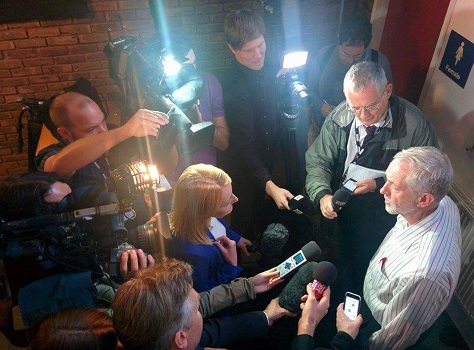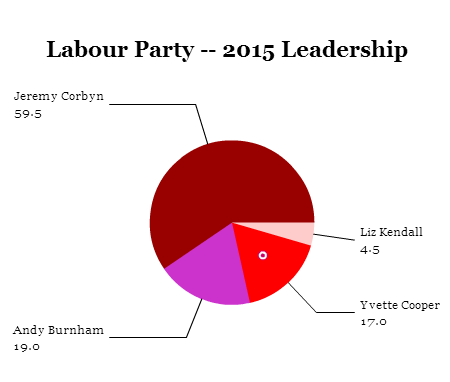A candidacy that struggled to win enough parliamentary nominations to run, and a candidate personally ambivalent about running — unsure he was up to the campaign, let along up to the job.![]()
A nomination supported by MPs who thought the far left should have a ‘voice’ in a campaign that, like in the past, would show just how anemic Labour’s far left is — and as weak as it would always be.
A surge that everyone, from former prime minister Tony Blair on down, believed would subside as the fevers of summer cooled and Labour’s electorate focused on a leader who might deliver the party to a victory.
A frontrunner who, despite a three-decade legacy of statements and positions that might otherwise doom another candidate, somehow swatted aside the taunts of Labour and Conservative enemies alike and, in his quiet, relentlessly focused and humorless manner, kept his attention on policy, not in responding to negative attacks or engendering gauzy feel-good connections via YouTube clips or on the rope line. What you see is what you get.
Today, Jeremy Corbyn becomes the duly-elected leader of the Labour Party, and he easily won with first preferences, far outpacing his nearest competition in shadow home secretary Yvette Cooper and shadow health secretary Andy Burnham.
Corbyn will also become a leader who now faces an outright mutiny from some of the party’s most important policy experts and rising stars. Despite his staggering win, which scrambles the very nature of postwar British politics, which created a revolution within Labour and which perhaps can begin a new epoch of British politics, the 66-year-old Corbyn must now wage a fight to consolidate his hold on the mechanisms of the party — from mollifying critics in the parliamentary caucus to reimaging the levers of policy review.
After a summer of Corbynmania, the late surge of shadow home secretary, Yvette Cooper, newly impassioned about economic policy and Syrian refugees, wasn’t enough to deny the leadership to an unlikely hero of the far left, a man who would make Tony Benn himself seem moderate and accommodating by contrast.
But as Corbyn takes the reins as the leader of Her Majesty’s Opposition, he should take to heart the hard-won lessons of those who held the office before him — stretching back to 1983, when Neil Kinnock first won the leadership.
Including Kinnock, there are four living former leaders of the Labour Party. Each of them, and their records, hold wise counsel for Corbyn as he attempts to consolidate power within Labour so that he’ll have a chance, in the 2020 election, to become prime minister in his own right. Continue reading Four lessons Corbyn can learn from Labour’s living former leaders



